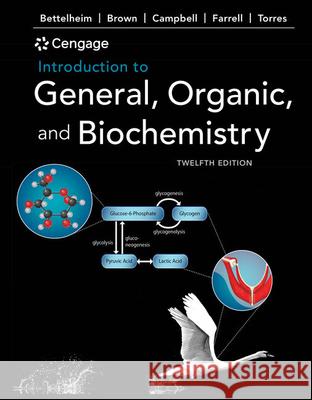Introduction to General, Organic, and Biochemistry » książka
topmenu
Introduction to General, Organic, and Biochemistry
ISBN-13: 9781337571357 / Angielski / Twarda / 2019 / 912 str.
Kategorie:
Kategorie BISAC:
Wydawca:
Cengage Learning, Inc
Język:
Angielski
ISBN-13:
9781337571357
Rok wydania:
2019
Dostępne języki:
Ilość stron:
912
Waga:
2.12 kg
Wymiary:
27.94 x 22.35 x 4.06
Oprawa:
Twarda
Dodatkowe informacje:
Glosariusz/słownik
Wydanie ilustrowane
Wydanie ilustrowane











